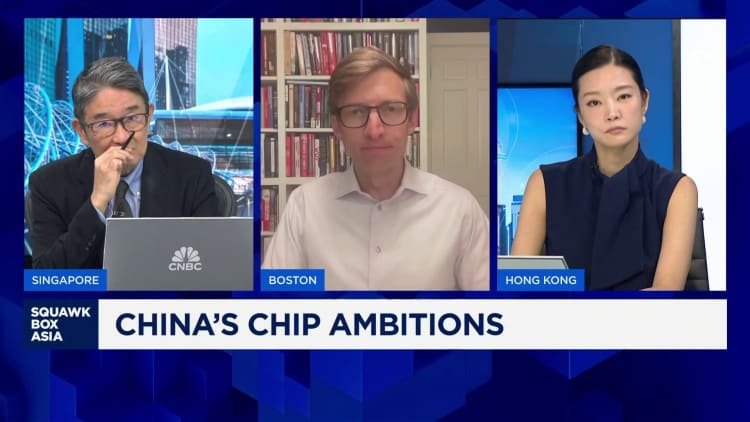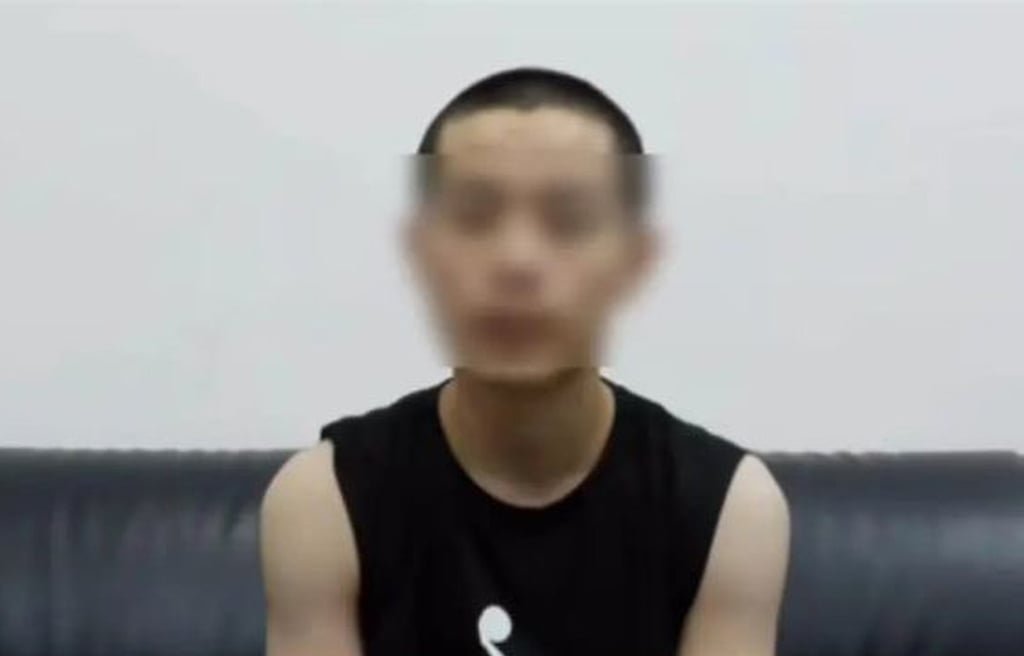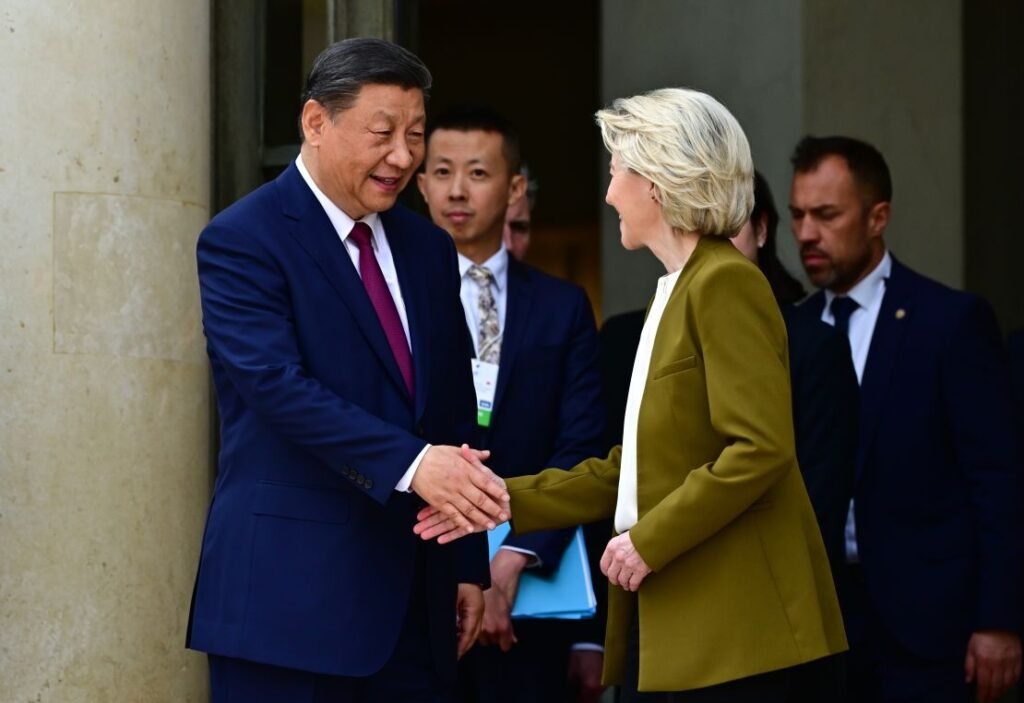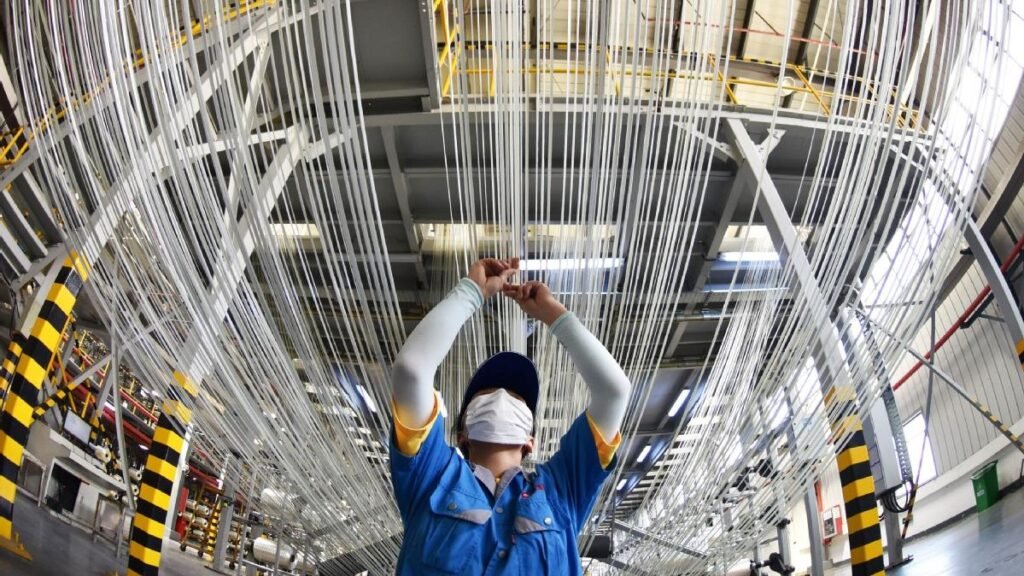[GANZHOU, CHINA, SciDev.Net] Media representatives from low- and middle-income countries have called on a Chinese journalist group to help them tackle fake news produced by artificial intelligence (AI).
AI-generated content poses a significant risk to the stability of many low- and middle-income countries as it is often used to create inaccurate news reports on social media platforms like Facebook, stoking religious or political tensions.
National media associations gathered at China’s Belt and Road Journalists Forum said the group should work together to help take on AI, for example by putting pressure on Facebook to consistently label AI content.
“If all of our countries can unite and hold these platforms accountable … perhaps labelling AI content that they know to be AI content … that would be a plus,” said Aditta Kittikhoun, a representative of the Laos Journalists’ Association and co-founder of the Laos-based publisher RDK Group.
Facebook’s Free Basics internet service is an internet access platform available in over 60 countries across Asia, Latin America and Africa, meaning it often plays a central role in people’s access to information.
|
SciDev.Net provides award-winning science news coverage free of charge. We rely on donations from readers like you to keep going. Donate to SciDev.Net todayProcessing ...
|
||
|---|---|---|
“Facebook has come … to enable a new means of distribution for us and so we have to play by the rules of these big platforms if we are to survive,” Kittikhoun said Friday (18 July) at a seminar during the two-day forum.
Facebook’s parent company Meta announced last year that it would start to label AI-generated content across its Facebook and Instagram platforms.
However, Kittikhoun said: “We haven’t seen this policy in action in Laos yet.”
A report by Meta’s oversight board last month (June) said that the company’s enforcement of the policy was inconsistent and urged it to make the labels for AI-manipulated media available in local languages.
Kittikhoun said the Belt and Road Journalists Forum — organised every year by China’s national media organisation the All-China Journalists Association — could also lobby technology platforms such as Facebook to give verified marks for reputable content, or prevent publishers that contravene community guidelines from promoting on the platform, curtailing their reach.
This year’s forum, which attracted over 100 delegates from over 50 countries, was a mix of national journalist association representatives from many low- and middle-income countries, as well as invited individual journalists from western Europe and the US.
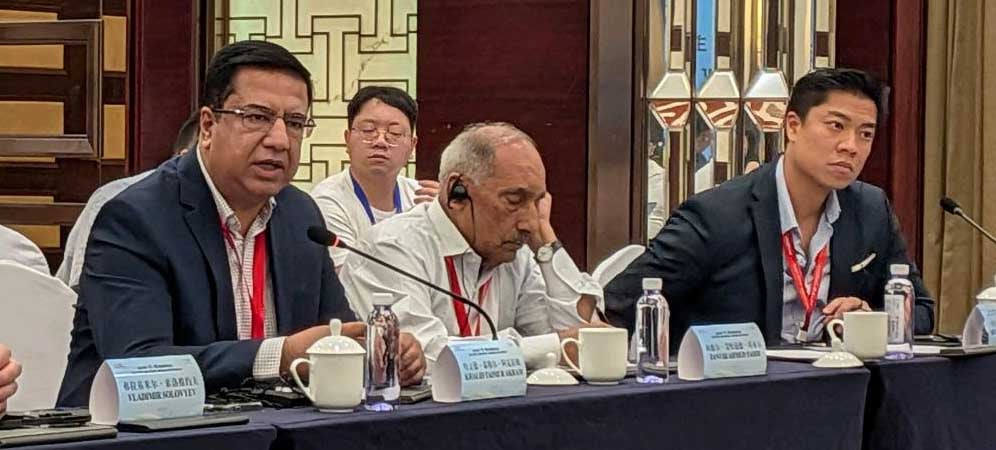
L-R: Media reprsentatives: Khalid Taimur Akram, Tanvir Ahmed Tahir and Aditta Kittikhoun speaking at the forum. Copyright: Ben Deighton / SciDev.Net
Tanvir Ahmed Tahir, executive director of the All Pakistan Newspapers Society, told the seminar that AI-generated content was having a destabilising effect on society in his country.
“I would request that this forum devise methods and technologies to fight [AI],” he said.
Khalid Taimur Akram, executive director of the Pakistan Research Centre for a Community with a Shared Future, a research institute, said many countries at the forum were suffering from fake, AI-generated news, and suggested the Belt and Road Journalists Forum could create a database of national news agencies to tackle this.
“Kazakhstan, Pakistan, Belarus, Russia, all of us, Armenia … we suffer not only from fake news but also from negative propaganda which is done against us, so this can only be countered if we have a joint platform,” he said.
He said the Belt and Road Initiative (BRI) — China’s global infrastructure strategy — could start registering news agencies in its over 150 member countries.
“Then a mechanism should be developed where you can give out positive and good news about BRI through emails, through your partner agencies and we can publish it in our countries.”
SciDev.Net emailed a request for comment to Meta, but no reply was received by the time of publishing this article.
This piece was produced by SciDev.Net’s Global desk.

